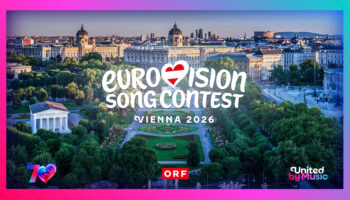Everybody, deep breaths now. The infamous Post Eurovision Depression can almost kick in. Switzerland won the 68th Eurovision Song Contest at the end of an exciting voting procedure and a highly debated Eurovision week in Sweden. Lights off, here are a few personal takes on the season that we are about to archive.
After last year’s victory of Loreen in Liverpool I was hoping that our precious Eurovision Song Contest would go back to the very good and capable hands of the Swedes. After years of crisis and negative image inside and outside the fanbase it was high time for the contest to find some peace and quiet. History proved me wrong.
Many many fans are indignant at the European Broadcasting Union for how they managed this season, and most importantly because of the dramatic developments in the very week of the shows in Malmö, with demonstrations outside of the arena, a disqualification of the Netherlands for reasons that have not exactly been made public yet, or again for the ban on certain flags such as the non-binary pride or the European one.
The use of fake applause during the performance of Israel might not be anything new and has unfortunately become quite the norm at Eurovision, but the boos directed at the Eurovision supervisor Martin Österdahl represent a sensational breaking point between the EBU and the fanbase that must be addressed urgently. The fanbase and fanbased media continue to represent the backbone of the contest. The EBU should not forget this.
On hate speech
Unfortunately heated behaviour did not stop at the very own organisational machine. This year saw the participation of a high number of queer acts, spamming from San Marino to Lithuania, from Australia to Ireland. The 68th edition of Eurovision will go down in history books as the first victory of a non-binary artist. So far so good, right? Yet, social media have been flooded with hate speech and insults towards these artists, for how they dress, for how they sing, for how they identify. It is enough to go around a few articles on the victory of Nemo to read hundreds and hundreds of hatred comments towards the non-binary singer.
Furthermore, many artists were also unjustifiably and violently attacked for their participation in the contest. I think here of Olly Alexander from the United Kingdom and Hera Björk from Iceland in particular, both aggressively attacked for their decision to compete. You can dislike a song, but you cannot verbally insult the artist if they decide to do their job. Too many “Eurofans” have crossed several red flags of decency and respect. This even urged the EBU to issue a statement on abuse and harassment.
This is not the fanbase I recognise myself into.
On Nemo’s victory
Yes, Switzerland‘s own Nemo Mettler won the Eurovision Song Contest with their entry The code. Nemo received the sensational amount of 591 points in total, reaching the fourth highest score of all times. This is 8 points more than Loreen in 2023 with Tattoo. The support for Switzerland came predominantly from the national juries, which awarded 365 points. This came very close to the 382 points that Salvador Sobral received back in 2017, but that year there were five more juries giving points.
But let us focus on the first victory of a non-binary artist in Eurovision and what this could mean in terms of representation and sensibilisation in Europe and beyond. Overnight pictures of Nemo made the tour of the globe and all of a sudden media from everywhere started talking about the non-binary community, and what being non-binary even means. This reminds me of the triumph of Conchita Wurst back in 2014, which led to a societal discussion on equal marriage and full adoption rights for same-sex couples, which were introduced in Austria only a few years later.
Nemo has already stated in the press conference following their victory that they will bring up the introduction of a third gender in Switzerland with the Swiss Minister Head of the Federal Department of Justice and Police Beat Jans, who promised that he will listen carefully to what the Swiss star has to say.
I sincerely hope this moment will become a turning point for the societal discussions on genders and gender roles. It would be a tremendous legacy of the Eurovision Song Contest to continue leading change by example and stretch its importance far beyond a simple music contest and well into European societies.
Let us remind of what Nemo declared on the Eurovision stage moments after winning:
I hope this contest can live up to its promise and continue
to stand for peace and dignity for every person in this world.
This is an opinionated article and only represents the point of view of its author.
Photo credit: Corinne Cumming / EBU




